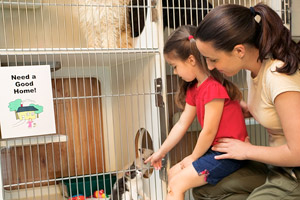
1. Who do you plan to interview? What is this person's area of expertise?
I plan on interviewing one of the sergeants or one of the volunteers. The volunteers may have more experience but that's about it. But the sergeant are usually the head of the shelter so they have to have a lot more work experience than most at the shelter.
2. Verify that you have called your interviewee to schedule an interview. What is the date and time of the interview? I have not called to schedule an interview but I am going to try and schedule one this weekend.
3. Phrase an open-ended question that will help you find research resources that would help to answer the EQ. What are some of the other ways shelters around the U.S. get animals adopted?
Why is this way effective?
4. Phrase an open-ended question that will help you think about other useful activities you might do to help you answer the EQ
Do pet adopts get pet people to adopt animals quicker?
Are events any different than just adopting an animal at the shelter?
Phrase two open-ended questions that help you to understand your interviewee's perspective on an aspect of your EQ.
How do you get so many animals adopted?
Do you know any other techniques that may get animals adopted


